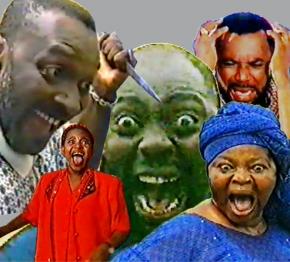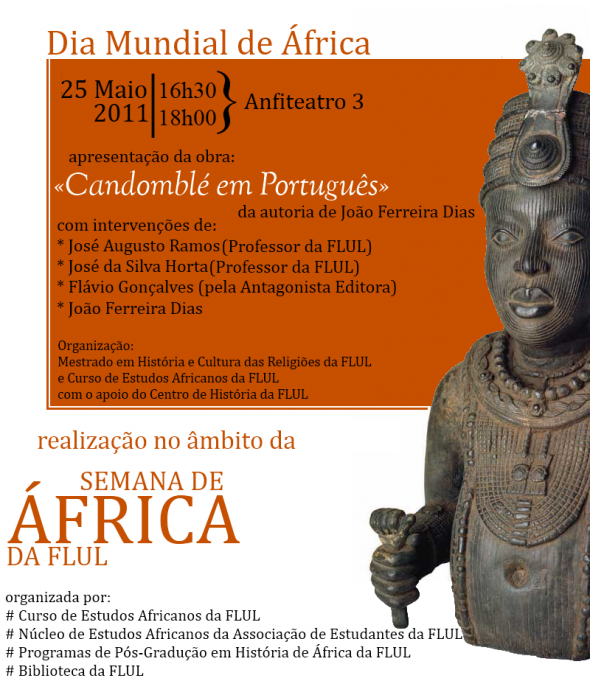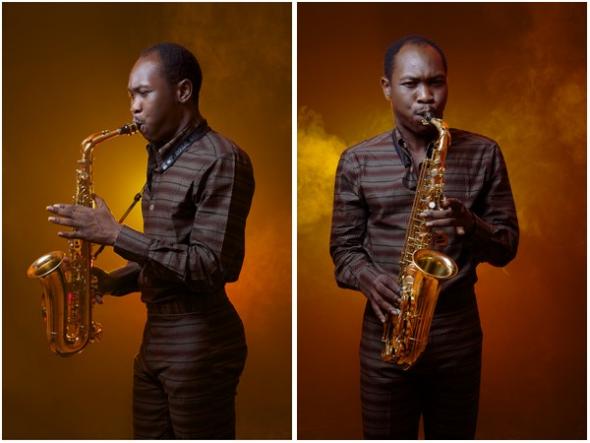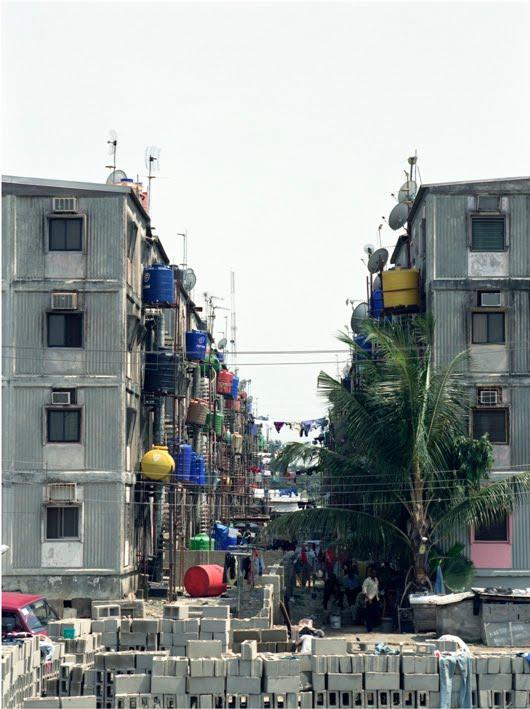TAFETA is pleased to present the collective photo exhibition BEFORE, BEFORE & NOW, NOW that opens on the 19th of March at 4pm at MIRA FORUM in Porto, Portugal.
This photography exhibition, firstly shown in 2014 at Bohams in London, celebrates the Nigerian history through photographers that have documented and reflected on its peoples, events and transformation into the country that we know it as today. Nigeria, as a nation state emerged from a diversity of preceding kingdoms, emirates, chieftaincies and other communities via an interlude of colonization by the British. This exhibition contrasts artworks by contemporary Nigerian photographers with a selection of works by their Nigerian predecessors (by descent or permanent settlement) produced at significant periods in Nigeria’s formation.
 The exhibition invites the viewer to consider the “before” and the “now” – the similarities and differences in technology, in events, individuals and landscapes, and in the particular ways of seeing as each photographer constructs an imagery about their land. These photographers offer diverse and original visions of Nigeria and the rest of the world. Their images are the product, or rather distillation, of specifically Nigerian sensibilities shaped by the cultural, social and ecological experiences of living in the country. They articulate the “now” of Nigeria with its energy and dynamism and its contrasts of individuals, communities and landscapes. At the same time they look to the future with its new possibilities in an ever more inter-connected world. The other end of the spectrum is the “before”, whether in the years leading up to Nigeria’s formation or at independence when the right to self-determination was finally wrested from the departing British.
The exhibition invites the viewer to consider the “before” and the “now” – the similarities and differences in technology, in events, individuals and landscapes, and in the particular ways of seeing as each photographer constructs an imagery about their land. These photographers offer diverse and original visions of Nigeria and the rest of the world. Their images are the product, or rather distillation, of specifically Nigerian sensibilities shaped by the cultural, social and ecological experiences of living in the country. They articulate the “now” of Nigeria with its energy and dynamism and its contrasts of individuals, communities and landscapes. At the same time they look to the future with its new possibilities in an ever more inter-connected world. The other end of the spectrum is the “before”, whether in the years leading up to Nigeria’s formation or at independence when the right to self-determination was finally wrested from the departing British.
Participant Photographers: Adeola Olagunju, Adolphus Opara, Aisha Augie-Kuta, Akintunde Akinleye, Amaize Ojeikere, Andrew Esiebo, Emeka Okereke, George Osodi, J.D. Okhai Ojeikere, Jide Alakij, Uche Okpha Iroha, Alfred Carew, Fosa Studios, J.A. Green, J.B. Abibmbola, N.W.Holm, Obafemi Luther, Olojo Studios and Sanya Freeman.
MIRA FORUM is an art gallery that fundamentally linked with photography and its relationship with other arts and knowledge. It is an interdisciplinary place that combines a social and a commercial facet, and it is considered a cultural art center due to the range of programs that it offers. Some of these include: individual and collective exhibitions, conferences, theater plays, workshops, concerts and dance performances. MIRA FORUM also emphasizes projects that involve local communities. Artistic residencies are also an important component in the intervention of Espaço MIRA and MIRA FORUM. Since October 2013, the gallery presented more than 30 exhibitions, 14 concerts, 10 workshops and 8 art residencies.
INFORMATION
BEFORE, BEFORE & NOW, NOW
At MIRA FORUM
Exhibition Opening 19 March > 4-7pm
19 March – 27 April 2016
Opening times: Tuesday/Saturday 3pm-7pm
MIRA FORUM
Rua de Miraflor 155,
4300-334, Porto, Portugal miraforum@espacomira.net (+351) 929145191/ 929113431
Contact and details about the exhibition: ines@tafeta.com | +351 918224949
 The exhibition invites the viewer to consider the “before” and the “now” – the similarities and differences in technology, in events, individuals and landscapes, and in the particular ways of seeing as each photographer constructs an imagery about their land. These photographers offer diverse and original visions of Nigeria and the rest of the world. Their images are the product, or rather distillation, of specifically Nigerian sensibilities shaped by the cultural, social and ecological experiences of living in the country. They articulate the “now” of Nigeria with its energy and dynamism and its contrasts of individuals, communities and landscapes. At the same time they look to the future with its new possibilities in an ever more inter-connected world. The other end of the spectrum is the “before”, whether in the years leading up to Nigeria’s formation or at independence when the right to self-determination was finally wrested from the departing British.
The exhibition invites the viewer to consider the “before” and the “now” – the similarities and differences in technology, in events, individuals and landscapes, and in the particular ways of seeing as each photographer constructs an imagery about their land. These photographers offer diverse and original visions of Nigeria and the rest of the world. Their images are the product, or rather distillation, of specifically Nigerian sensibilities shaped by the cultural, social and ecological experiences of living in the country. They articulate the “now” of Nigeria with its energy and dynamism and its contrasts of individuals, communities and landscapes. At the same time they look to the future with its new possibilities in an ever more inter-connected world. The other end of the spectrum is the “before”, whether in the years leading up to Nigeria’s formation or at independence when the right to self-determination was finally wrested from the departing British.



